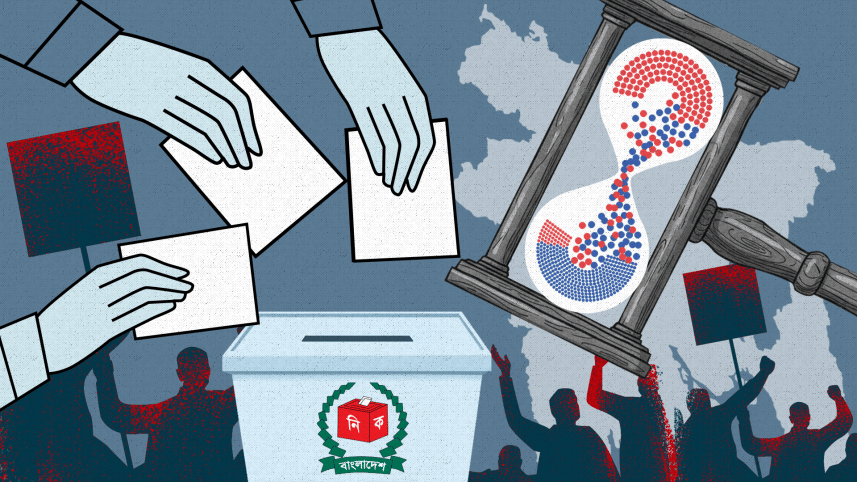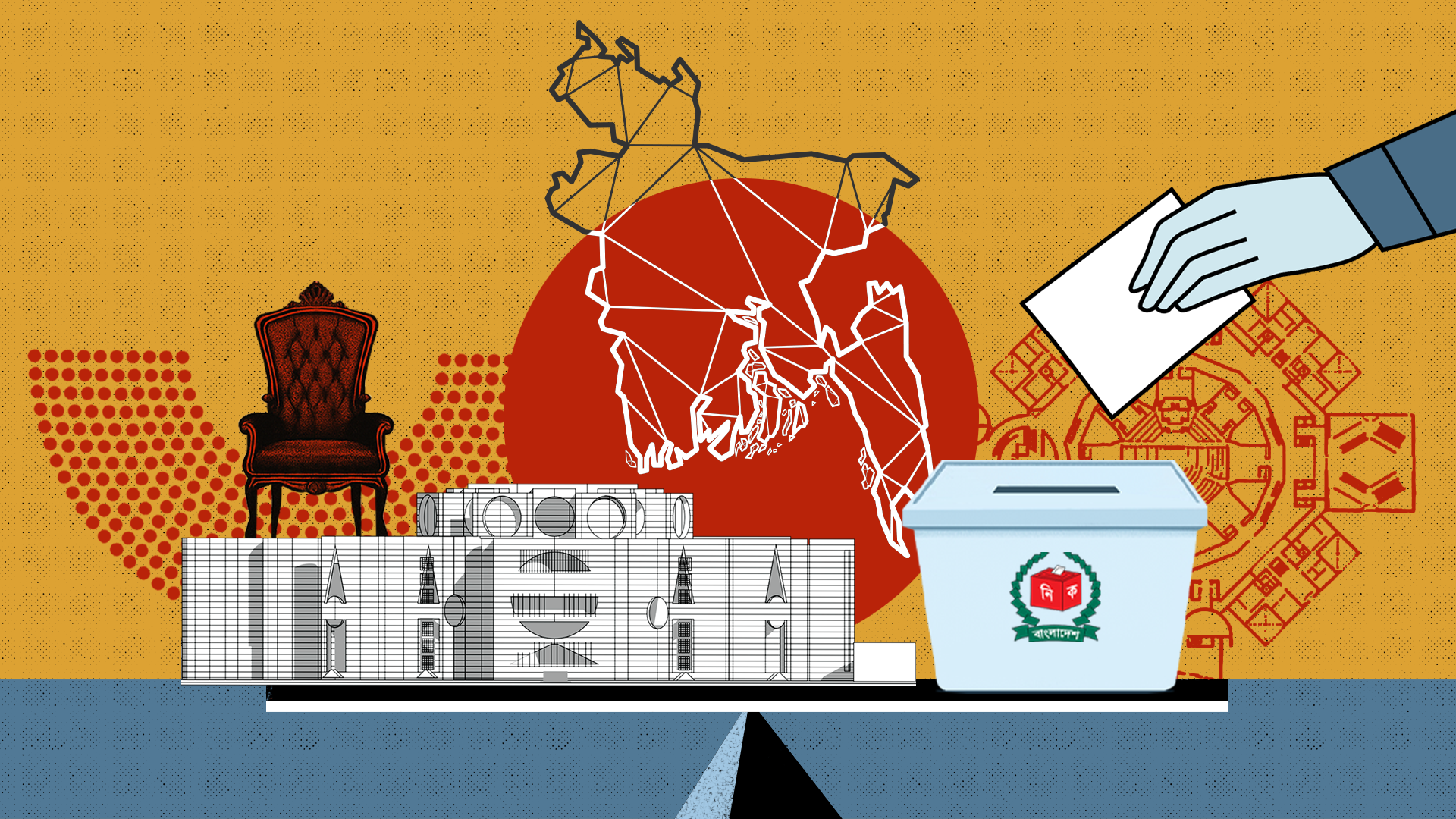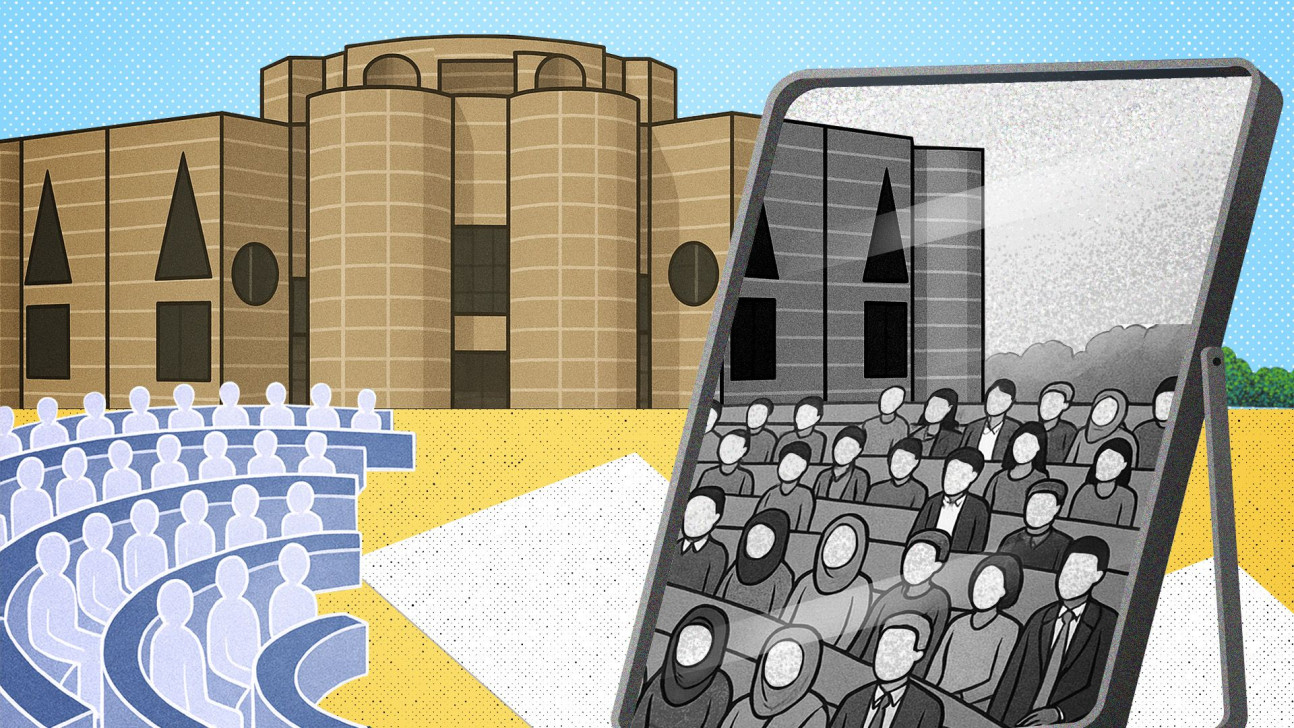Proportional representation and the politics behind it

While there have been sporadic demands in recent months for implementing the proportional representation (PR) system in the next election, it has never quite seemed to be the deal-breaker that Jamaat-e-Islami and its allies are now making it out to be. On Monday, during a meeting with the top officials of the Election Commission, Jamaat leaders insisted that the election (to the lower house) should be held under PR.
This was not part of the July National Charter either. The proposal for a bicameral legislature was premised on the assumption that the lower house, with 300 MPs, would retain the first-past-the-post (FPTP) system, while the upper house would comprise 100 members based on the proportional representation of votes received in the election. The Islamist parties accepted this arrangement. BNP and four other parties put in a note of dissent, but we will come to that later. But first, it should be pointed out that the Islamist parties now demanding proportional representation in the lower house had already consented to the charter proposal, and their acceptance of the prevailing electoral system was therefore implicit.
Of late, however, they have mounted a campaign portraying the PR system as a panacea as if it would resolve all our problems, from vote rigging to abuse of office to corruption. It will not.
There have been extensive discussions about the pros and cons of the PR system. This article will not reiterate those points, but it should be apparent that under PR, the choice of MPs would largely depend on the central leadership of respective parties since voters would be casting their ballots for a party symbol rather than an individual. Given the general lack of transparency among parties in selecting their nominees, the PR system would concentrate even more power in the hands of a few leaders at the top. Aspiring MPs, for their part, would then shift their focus from pleasing voters to gratifying party leadership, even more than they now do. It can be argued that a prerequisite for an effective PR system is internal democracy within political parties, so as long as the parties themselves remain undemocratic, this new system would hardly bear any fruit.
Jamaat and its allies are presumably championing PR because it would give them an electoral advantage as smaller parties often lack sufficient votes to win in individual constituencies, but collectively they might have enough to secure some seats in parliament under PR. However, pressing for PR now is like insisting on changing the rules of the game after the date of the match has been finalised, the teams have chosen their squads, and some have already decided not to compete.
Understandably, proportional representation benefits smaller parties; it could also help fringe groups—environmentalists, animal rights activists, women's groups, ethnic minorities, etc—who might have decided to float their own platforms and registered with the Election Commission. They have not. Moreover, PR would preclude the possibility of independent MPs, potentially forcing many to join existing parties simply to remain relevant in electoral politics.
Although the Islamist parties make it out to be a simple, straightforward system, PR would require considerable time just to agree on the rules and regulations. For example, let us assume that one party wins 0.5 percent of votes and another 1.5 percent—how would their seats be distributed? One cannot have half a seat in parliament. In that case, would there be a minimum threshold to qualify for parliamentary representation? What would that threshold be? And what happens to the fractions? How would those be resolved?
These matters will have to be discussed at length among the parties before the Election Commission could find a workable solution and draft appropriate regulations. That would require time—presumably more than the few months remaining before the election.
While the idea of an upper house in parliament was largely accepted as a means of ensuring greater checks and balances in parliamentary proceedings, the July Charter proposes proportional representation for its formation as a guiding principle. If the seats of the upper house are distributed according to the proportion of votes received in the national election, it would almost certainly produce a different composition in which the ruling party could not wield as much influence as it does in the lower house. Consequently, bills from the lower house would likely face more vibrant debate and perhaps stronger criticism, if not outright opposition.
However, BNP has dissented, advocating an unusual interpretation of proportional representation. Instead of basing it on the proportion of votes received, it has proposed that the upper house be constituted according to the proportion of seats parties win in the lower house. That would essentially make it a mirror image of the lower chamber and thus render it superfluous. Of course, provisions could be introduced to make it a more balanced deliberative body, with a designated number of non-partisan nominees sitting in the upper house. But without such measures, there would be little point in having an upper chamber that merely replicates the lower one. In that scenario, the ruling party would retain the same level of influence, and in practice, the upper house would fail to fulfil its intended purpose. Not that the proposed system guarantees a dramatic improvement, but it is at least a modest step towards restraining majoritarian dominance in parliament.
So, Jamaat's insistence on PR can be seen, at best, as a tactic to pressure BNP to relent from its stance about the upper house. At worst, it is a ploy to delay the polls.
Tanim Ahmed is digital editor at The Daily Star.
Views expressed in this article are the authors' own.
Follow The Daily Star Opinion on Facebook for the latest opinions, commentaries and analyses by experts and professionals. To contribute your article or letter to The Daily Star Opinion, see our guidelines for submission.




 For all latest news, follow The Daily Star's Google News channel.
For all latest news, follow The Daily Star's Google News channel. 

Comments